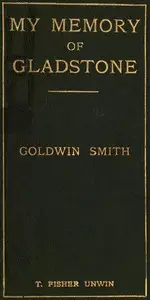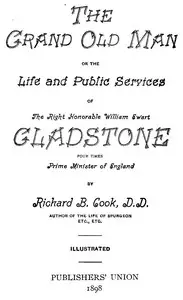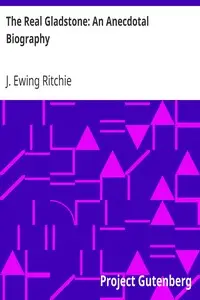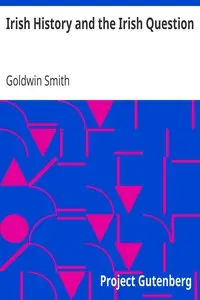"My Memory of Gladstone" by Goldwin Smith is a recollection of the life of William Ewart Gladstone. Smith reflects on Gladstone's intellect, strong work habits, and dedication to serving the public. It highlights important moments in Gladstone's political life, from his early days as a Tory to becoming a leader in the Liberal Party. The book takes into account his views on important issues like separating the Church and State in Ireland and allowing more people to vote. Smith uses stories and descriptions to show Gladstone's character, noting both his successes and the arguments that followed him, and how he changed British politics and society.

My Memory of Gladstone
By Goldwin Smith
A journey back in time unveils the complex story of a powerful political leader, filled with triumphs, controversies, and an unwavering commitment to shaping a nation.
Summary
About the AuthorGoldwin Smith was a British-born academic and historian who was active in both Great Britain and North America. From 1856 to 1866, he was a professor of modern history at the University of Oxford. Smith taught at Cornell University from 1868 to 1872, and was instrumental in establishing the university's international reputation, but left when it began admitting female students. He is the namesake of Goldwin Smith Hall at Cornell University, and was outspoken regarding his often controversial political views. Smith was a supporter of the Union during the American Civil War and a critic of imperialism. He was also opposed to the Irish Home Rule movement and women's suffrage, along with holding Anglo-Saxonist and antisemitic views.
Goldwin Smith was a British-born academic and historian who was active in both Great Britain and North America. From 1856 to 1866, he was a professor of modern history at the University of Oxford. Smith taught at Cornell University from 1868 to 1872, and was instrumental in establishing the university's international reputation, but left when it began admitting female students. He is the namesake of Goldwin Smith Hall at Cornell University, and was outspoken regarding his often controversial political views. Smith was a supporter of the Union during the American Civil War and a critic of imperialism. He was also opposed to the Irish Home Rule movement and women's suffrage, along with holding Anglo-Saxonist and antisemitic views.



















